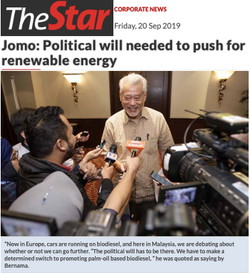- Jan 19
- 4 min read
KUALA LUMPUR, Malaysia, Jan 19 2026 (IPS) - After condemning pragmatic responses to the 1997-98 Asian financial crises, the West pursued similar policies in response to the 2008 global financial crisis without acknowledging its own mistakes.
Politicised exchange rates
After US Federal Reserve Chairman Paul Volcker sharply raised interest rates from late 1979 to curb inflation, the dollar’s value strengthened despite deepening stagnation.
US exports could barely compete internationally, particularly with Germany and Japan. During his first term, Trump initially pursued a strong dollar policy, which undermined exports and encouraged imports.
The September 1985 ‘Plaza Accord’ among the G7 grouping of the world’s largest economies, held at New York’s Plaza Hotel, agreed that the Japanese yen and the Deutsche mark must both appreciate sharply against the US dollar.
The ‘strong yen’ period, or endaka in Japanese, ensued for a decade until mid-1995. This made Japanese imports less competitive, enabling the Reagan era boom.
By accelerating reunification with the East and the new euro currency, German Chancellor Helmut Kohl prevented the mark strengthening as much as the yen.
Thus, Germany avoided the Japanese catastrophe after its decades-long post-war miracle ended abruptly with the disastrous 1989 Big Bang financial reforms.
Liberalising capital flows
As the IMF urged national authorities to abandon capital controls, East Asians borrowed dollars, expecting to repay later on better terms.
Meanwhile, the dollar only stopped weakening after the US allowed Japan to reverse yen appreciation in mid-1995.
Under Managing Director Michel Camdessus, the IMF began pushing capital account liberalisation. This contradicted the intent of the Fund’s sixth Article of Agreement, affirming national authorities’ right to manage their capital accounts.
Despite considerable evidence to the contrary, Camdessus’ IMF preached the ostensible virtues of capital account liberalisation.
East Asian emerging financial markets were initially delighted by the significant capital inflows before mid-1997. After the strong yen decade, the US dollar appreciated from mid-1995.
When financial inflows reversed after mid-1997, some East Asian monetary authorities were unable to cope and turned to the IMF for emergency funding.
Many paths to crises
The Asian financial crisis is typically dated from 2 July 1997, when the Thai baht was ‘floated’ and its value quickly fell without central bank support. The ensuing panic quickly spread like contagion across national boundaries via financial markets.
Financial investors – in Bangkok, Singapore, Hong Kong, Tokyo, London and New York – hastily withdrew their funds, often mindlessly following perceived ‘market leaders’ without knowing why, like animal herds in panic.
Funds fled economies in the region, like frightened audiences in a dark theatre hearing a fire alarm. Capital even fled the Philippines, which had received little finance, because it was in Southeast Asia, the ‘wrong neighbourhood’.
After earlier celebrating Malaysia, Indonesia, and Thailand as ‘East Asian miracle’ economies, confidence in Southeast Asian investments fell suddenly.
Central banks in the region were sceptical of IMF prescriptions but believed they had little choice but to comply.
Press photographs showed Camdessus standing sternly, with arms folded like a displeased schoolmaster, over the Indonesian President bowing deeply to sign the IMF agreement.
This humiliating image probably expedited Soeharto’s shock resignation soon after, in mid-1998, over three decades after he seized power in a brutal military putsch in September 1965.
Following an earlier financial crisis, a 1989 Malaysian law had prohibited some risky banking and financial practices, but the authorities sought to attract foreign investments into its stock market.
Thailand had become vulnerable by allowing borrowers direct access to foreign banks through the Bangkok International Banking Facility and its provincial counterpart.
Debtors could thus bypass central bank regulation and supervision. The Thai currency float prompted massive funds outflows from the country.
As market confidence waned, funds fled Malaysia’s bourse, triggering a massive collapse in the currency’s value against the dollar, which had steadily weakened against the yen between 1985 and 1995.
Following massive capital outflows, Malaysia finally introduced capital controls on outflows from September 1998, fourteen months after the crisis began!
The controls enabled Malaysia to stabilise its currency and the economy temporarily, but also ended the earlier decade of accelerated industrialisation and growth.
Learning from experience
Rather than acknowledge and address the worsening problem due to earlier capital account liberalisation, the Fund made things worse with its prescriptions.
It insisted on keeping capital accounts open and raising interest rates to reverse outflows. This slowed economic growth as borrowing – and hence, both spending and investing – became more costly.
As investment and spending are necessary for economic growth, IMF prescriptions exacerbated the problems instead of providing a solution.
The East Asian financial crisis was undoubtedly avoidable. Experience has shown that financial markets and capital flows do not function as mainstream theories claim.
Thus, financial dogma and its influence on economic theory and policy obscured more realistic understanding of how markets actually operate and the ability to develop more pragmatic and appropriate policy alternatives.
History never fully repeats itself. But better policymaking for financial crisis avoidance and recovery will only emerge from more informed, historically grounded analysis.
Related IPS Articles
Available online at: Economic Dogma Blocks Pragmatic Policies




















